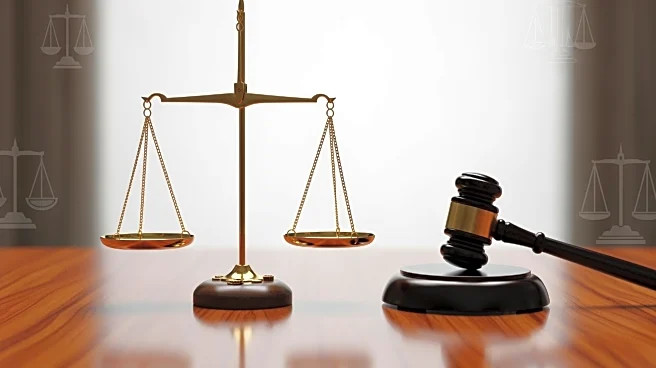What's Happening?
Former Illinois House Speaker Michael Madigan has filed an appeal to overturn his corruption conviction, arguing that the prosecution misapplied bribery and fraud statutes. The appeal, submitted to the 7th
Circuit U.S. Court of Appeals, claims that the federal prosecution criminalized standard political practices, contrary to recent Supreme Court rulings. Madigan's legal team contends that the evidence presented, including the ComEd bribery scheme and Madigan's offer to assist Alderman Daniel Solis, does not constitute bribery. The appeal also criticizes the trial judge's instructions to the jury, particularly regarding the definition of 'corruptly' under federal bribery law. Madigan, who began serving a 7.5-year sentence in October, seeks to have his conviction overturned, arguing that the trial was flawed.
Why It's Important?
The appeal by Michael Madigan, a significant political figure in Illinois, highlights ongoing debates about the boundaries of legal and illegal political conduct. The outcome of this appeal could influence future prosecutions of political figures, potentially redefining what constitutes bribery and corruption in political contexts. If successful, the appeal could lead to a new trial and impact Madigan's sentence. The case also underscores the tension between federal prosecutors and state political practices, with implications for how political relationships and actions are scrutinized legally.
What's Next?
Prosecutors are expected to respond to Madigan's appeal by December 3, with oral arguments likely in early 2026. The decision of the 7th Circuit U.S. Court of Appeals will be closely watched, as it could set a precedent for similar cases. If the appeal is successful, it may lead to a retrial or even an acquittal, affecting Madigan's current imprisonment. The legal community and political observers will be monitoring the case for its potential to reshape legal interpretations of political conduct.









